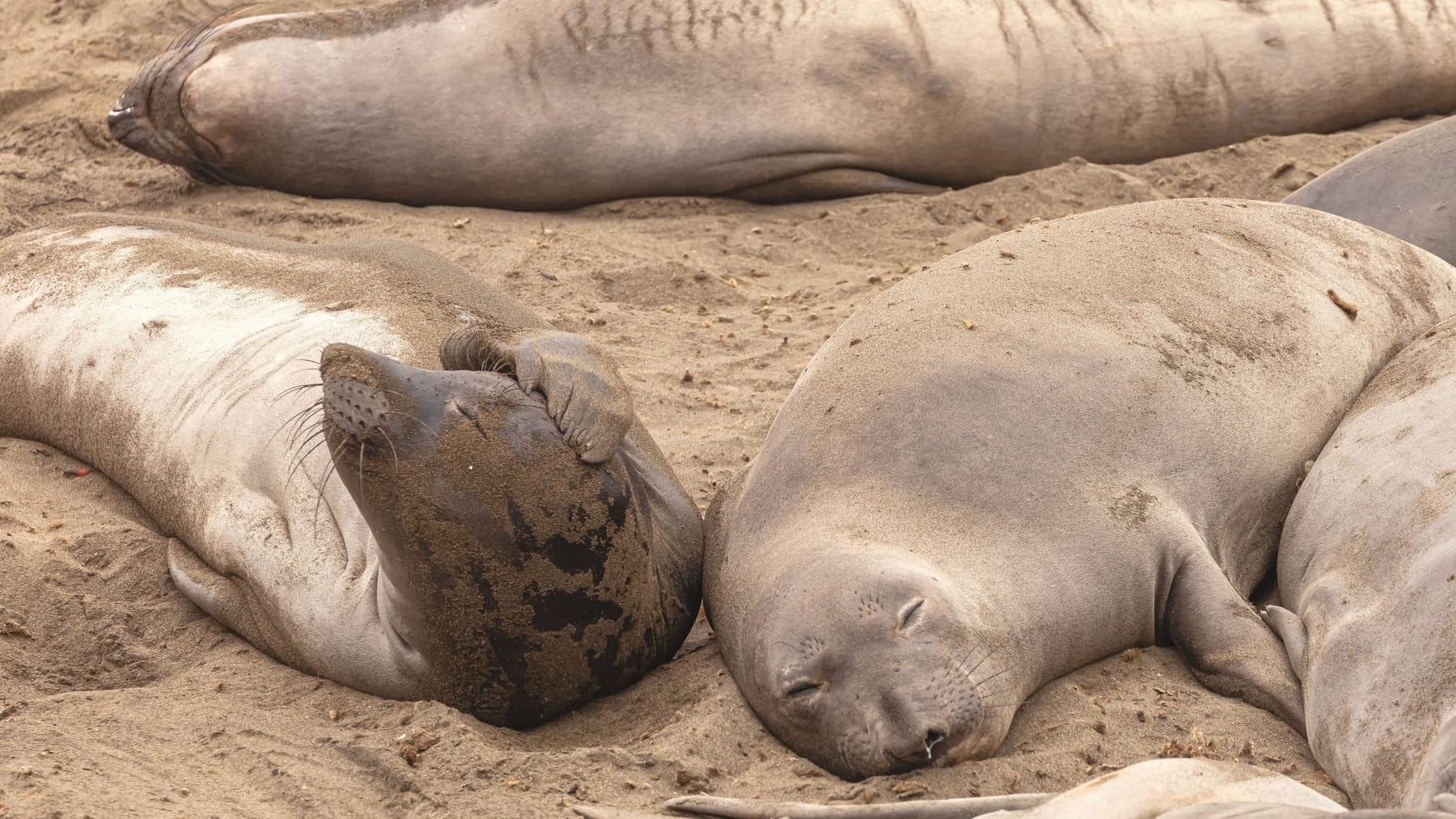Just 2 hours of sleep in 10-minute chunks: How this sea creature shuts down its body and what happens next is almost terrifying.
Have you heard of a power nap? The English term refers to a short, deep nap during which you can recharge your batteries. Now US researchers report in the journal Science that a large Pacific mammal is the master of this power nap. According to their findings, northern elephant seals sleep only two hours a day, sleeping in ten-minute segments. Also, something happens that makes us humans shudder.
Scientists at the Scripps Institution of Oceanography at the University of California, San Diego, wondered when northern elephant seals sleep. Because marine mammals spend about seven months a year hunting prey. To do this, they dive to a depth of 750 meters and can survive up to thirty minutes without air. Between dives, they float to the surface for a few minutes just to breathe, so as not to become a meal for a hungry shark or whale.
Swimming cap with sensors
To study how seals sleep, researcher Jessica Kendall Barr developed a type of bathing cap with electrodes to measure brain activity and body sensors to record movement and heart rate data. She outfitted 13 females with this swim cap, five in a lab tank and eight in the wild.
Kendall Barr and her colleagues found that, unlike dolphins and sea lions, elephant seals do not perform what is known as hemispheric sleep. These marine mammals sleep with only one hemisphere of their brain while the other stays awake for safety.
This is how elephant seals sleep
Not so for elephant seals. They can keep their bodies tense in the deep sleep phase and float in the water. In the so-called rapid eye movement or rapid eye movement phase (German: rapid eye movements) they lose control of their bodies. “Some muscles became temporarily paralyzed, and the animals plunged to the sea floor in an apparent downward spiral – like fallen leaves,” writes Kendall Barr. These phases often only last about ten minutes and are enough for the animals to accumulate energy.
When the oxygen runs out, the brain kicks in
“I find it fascinating that a mammal can sleep while floating hundreds of meters below the surface,” co-author Terri Williams told the BBC. “It’s not light sleep, it’s real deep sleep that will make people snore.” Remarkably, seals’ brains reliably wake them up before they run out of oxygen. Williams: “Imagine waking up at the bottom of a deep, dark pool knowing you’ve run out of oxygen. It gives you chills.”
By the way, until now the African elephant was considered the animal that experiences the least amount of sleep: it closes its eyes only for about two hours a night. The short ten-minute siesta by the sea of the same name now seems to top that.
Why is it important to study the sleeping habits of marine animals? Kendall-Bar writes, “Knowing more about where, when and how marine mammals roost at sea can help scientists identify and protect critical hibernation habitats.” So that the animals sleep and live in peace.

“Alcohol buff. Troublemaker. Introvert. Student. Social media lover. Web ninja. Bacon fan. Reader.”






More Stories
“Time seems to cure long Covid.”
Science: The use of artificial intelligence is changing the way hospitals operate
Simple recipe: sweet cream cheese slices from the tray